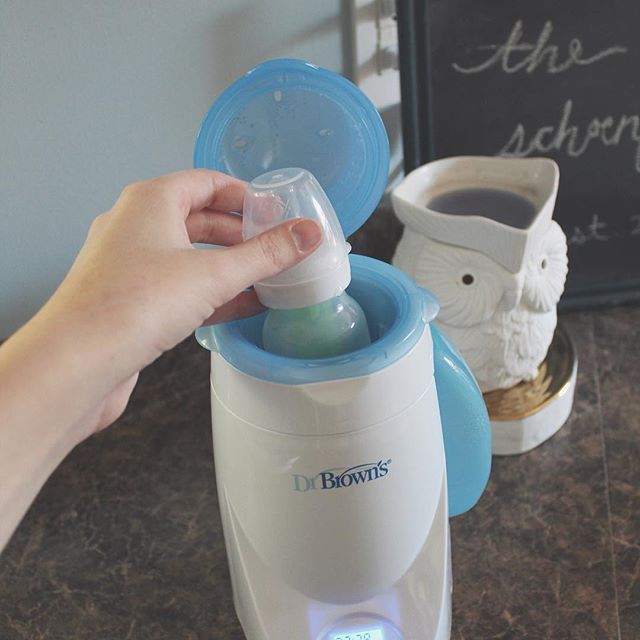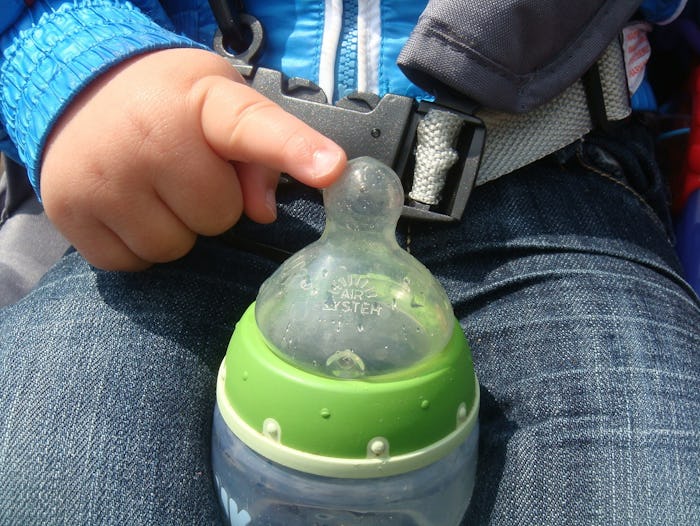Anyone who has ever tried to warm up a bottle with a screaming, hungry infant nearby will tell you that heating that bottle feels like it takes an eternity. It's even tougher when your milk is frozen and you have to thaw it out before heating it up. It would be so great reduce the process down to one simple step, but can you thaw breast milk in a bottle warmer?
According to Medela, the recommended way to thaw frozen breast milk is to put it in the refrigerator overnight. But if you are in a time crunch, you can take the container straight out of the freezer and run it under warm water until it thaws. You can also place the frozen container in a bowl of warm water for about 20 minutes. The key here is to get the milk warm, but not hot. Dr. Juliet Baciocco Spurrier, a board certified pediatrician and founder of BabyGearLab, recommended heating breast milk to no warmer than body temperature, which is about 98.6 degrees Fahrenheit or 37 degrees Celsius. This can be a challenge if you are trying both to thaw and warm using a timed device such as an electric bottle warmer.

Some baby bottle warmers, such as Dr. Brown's Deluxe Bottle Warmer, come with instructions to thaw frozen milk. The caveat is that with most bottle warmers the milk must have first been frozen in a bottle. Since most moms who pump and freeze use breast milk storage bags, storing breast milk in bottles can become both expensive and create a storage problem, especially if you make a lot of milk. The good news, according to registered nurse and lactation consultant Robyn Roche from Breastfeeding In Combat Boots, is that there is less fat, immunoglobulin A, and white blood cell loss when you store milk in glass or plastic bottles. According to BabyGearLab you can find some bottle warmers, like the Kiinde Kozii, which will heat up breast milk right in a storage bag.
The main issue with using a bottle warmer is that if it doesn't come with an automatic shut-off feature, your precious breast milk can overheat and lose essential vitamins and minerals. So, although you can use a bottle warmer to thaw milk, your best bet is to follow the expert guidelines and thaw the milk in the fridge overnight.
